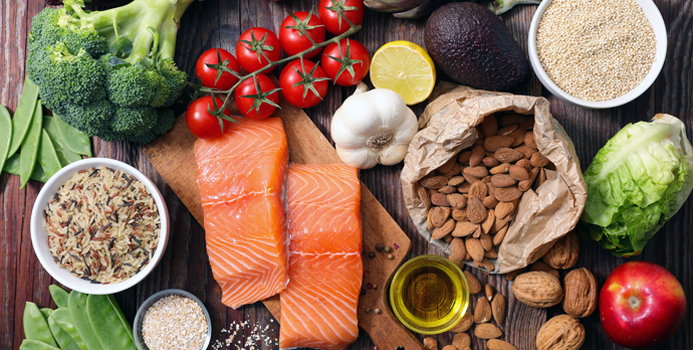If you’ve heard about the Whole30 Program but need to know if it’s right for you, you’ve come to the right place. Finding out if this program is safe and effective will help you make an informed decision about whether or not you should take the leap and give this weight loss plan a try.
What is Whole30?
When following a type of healthy eating weight loss plan called Whole30, you’ll focus on eating whole foods for 30 days. During this time, you’re not supposed to step on the scale. Creators of the diet claim you’ll shed pounds, feel better, and be healthier just 30 days after following the diet.
What to Eat on the Whole30 Plan
When following the Whole30 program, you’re allowed to eat nothing but real, whole foods. You’re encouraged to consume seafood, moderate amounts of meat, eggs, some fruit, lots of veggies, natural fats, herbs, seasonings, spices and vinegar to flavor foods. The goal is to eat foods with very few ingredients that are unprocessed, whole foods—foods that cavemen probably ate.
What Not to Eat?
There are a ton of foods on the do-not-eat list when following the Whole30 weight loss plan. Such foods include artificial sugar, added sugar, syrups, honey, agave, alcohol, grains, legumes (with the exception of snow peas, sugar snap peas and green beans), soy products, peanut butter, dairy foods, sulfites, MSG, carrageenan, baked goods, desserts and other treats, pizza, chips, French fries, other fried foods, and other types of junk food. The more ingredients (especially preservatives) listed on a food label, the more you should avoid that food when following the Whole30 plan.
Does the Diet Work?
Chances are, you’ll lose weight (and you may feel better) when following the Whole30 plan for 30 days if you’re overweight or obese. This is because the diet is very restrictive, eliminates certain food groups, and cuts all unhealthy foods—meaning you’ll likely be eating many fewer calories than you’re used to. However, this type of eating isn’t sustainable long term for many people, and you may feel hungry or “unsatisfied” when following it.
Bottom Line
Cutting out legumes, whole grains, dairy foods and soy foods (as suggested when following the Whole30 diet plan) isn’t necessary for most people. In fact, these foods provide a variety of healthy nutrients your body requires on a daily basis to function properly. So while following the Whole30 plan for 30 days likely won’t hurt and will probably help you shed pounds, choosing a diet plan that’s more sustainable long-term (less restrictive) is your best bet.
[Image via Shutterstock]



